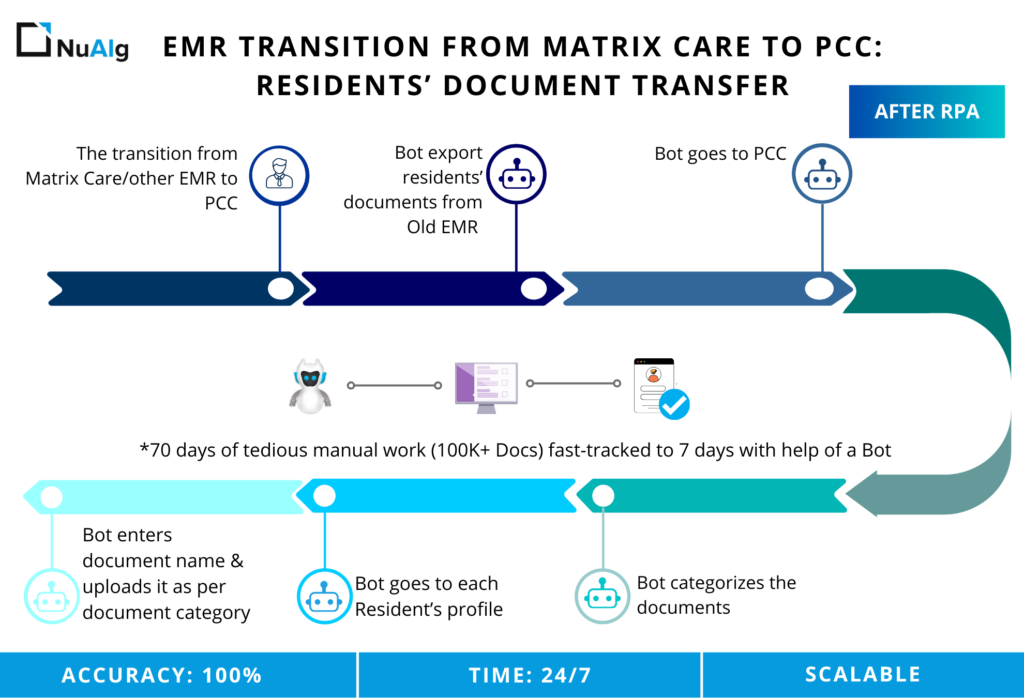Improving Productivity, Resident/ Employee Experience and Driving Innovation through Digital Transformation
Overview
The Artificial Intelligence (AI) and Robotic Process Automation (RPA) Center of Excellence (COE) project supported the digital transformation initiatives of UMC by creating a centralized hub for the development and implementation of AI and RPA powered technology. The project began with a thorough analysis of all UMC lines of business (functions) to identify areas where automation could be implemented to improve efficiency and reduce costs. Based on this analysis, a priority list of RPA and AI projects was created, targeting UMC's major operational processes with the greatest potential for cost savings and impact. The COE provides the necessary resources, expertise, and support to ensure the successful implementation and maintenance of these projects, ultimately driving digital transformation and business value for UMC.

Business Challenge
-
UMC lacked in-house expertise in RPA and had limited experience with digital transformation technologies.
-
Automation opportunities were difficult to identify and prioritize without a clear governance or strategic framework.
-
Staff were overwhelmed by repetitive tasks, affecting morale and reducing time available for direct resident care.
-
These constraints ultimately limited scalability, innovation, and the organization’s ability to deliver consistent, high-quality services.
Before implementing the AI and RPA Center of Excellence, United Methodist Communities (UMC) faced significant operational hurdles that impacted productivity, innovation, and both employee and resident experience. Many processes remained manual—particularly in HR, clinical care, dining services, and back-office operations—resulting in inefficiencies and increased labor costs. Additionally, data was siloed across various systems, making it difficult for leadership to access a comprehensive, real-time view of performance.
NuAIg Solution

Impact
Want to start with your automation journey?
Latest Blog Posts
Speak with our analyst
Corporate Office
US – EDISON
- 515 Plainfield Avenue, Suite 2, Edison NJ 08817
- +1 732 328 8205
- info@nuaig.ai





